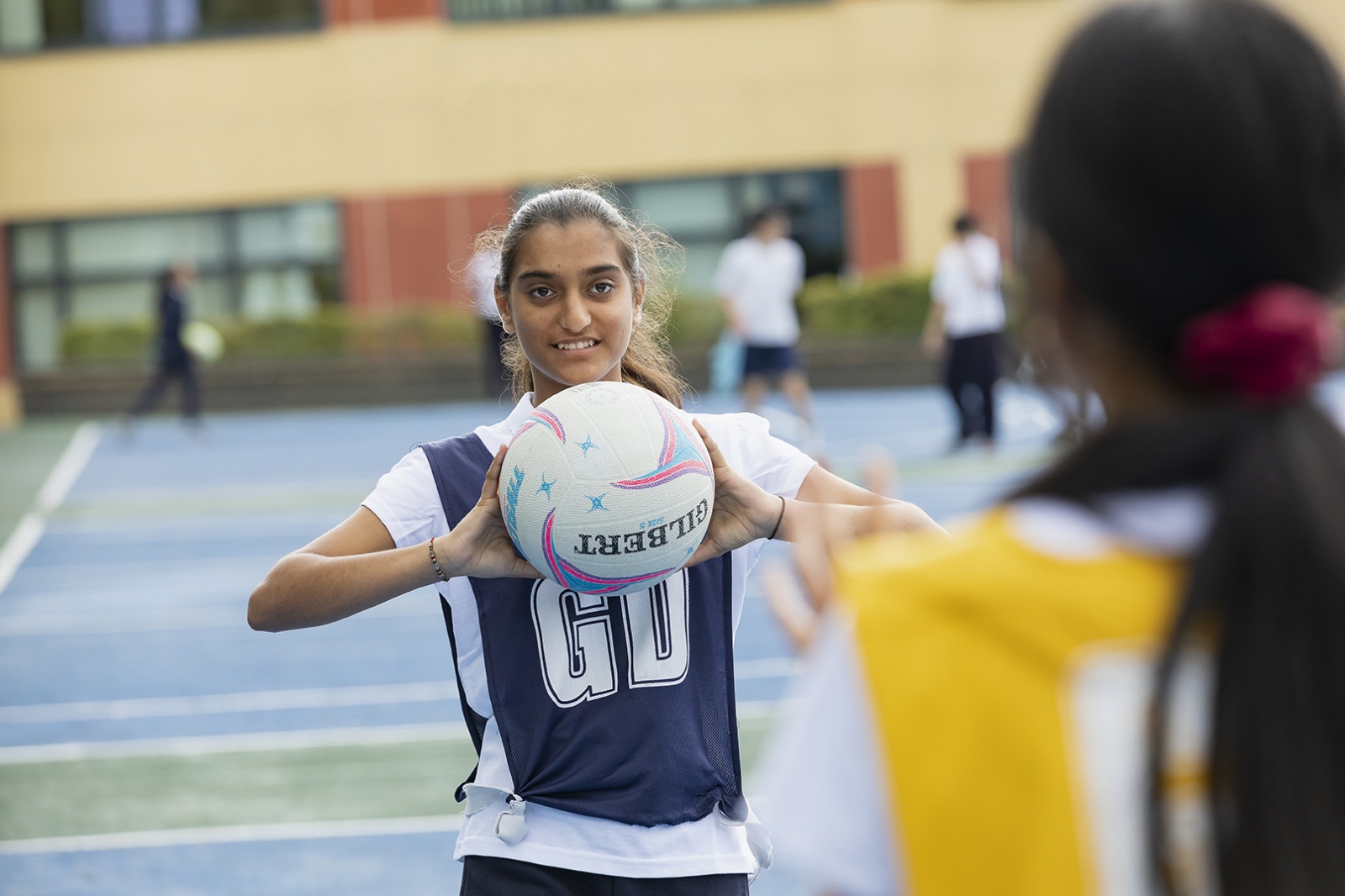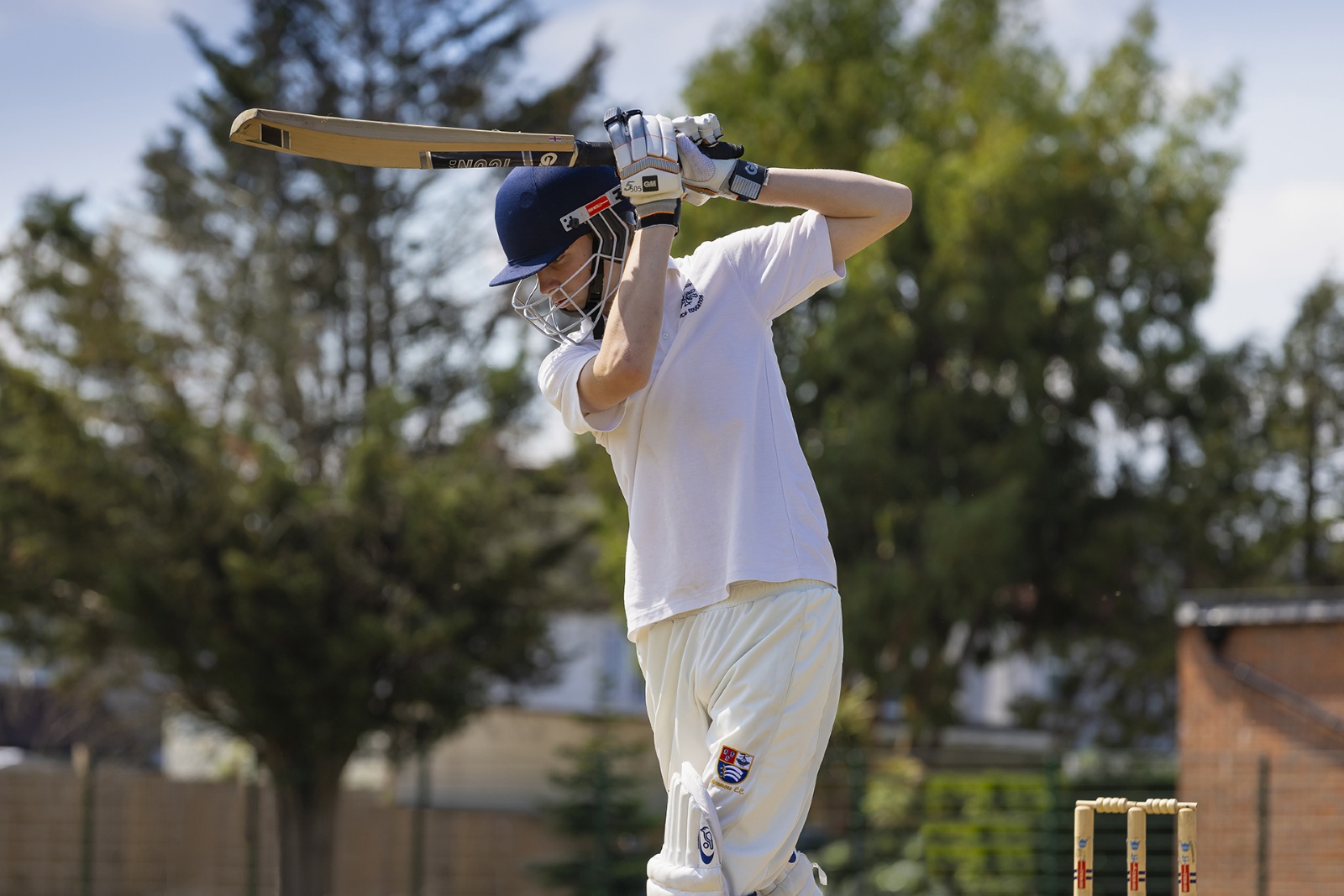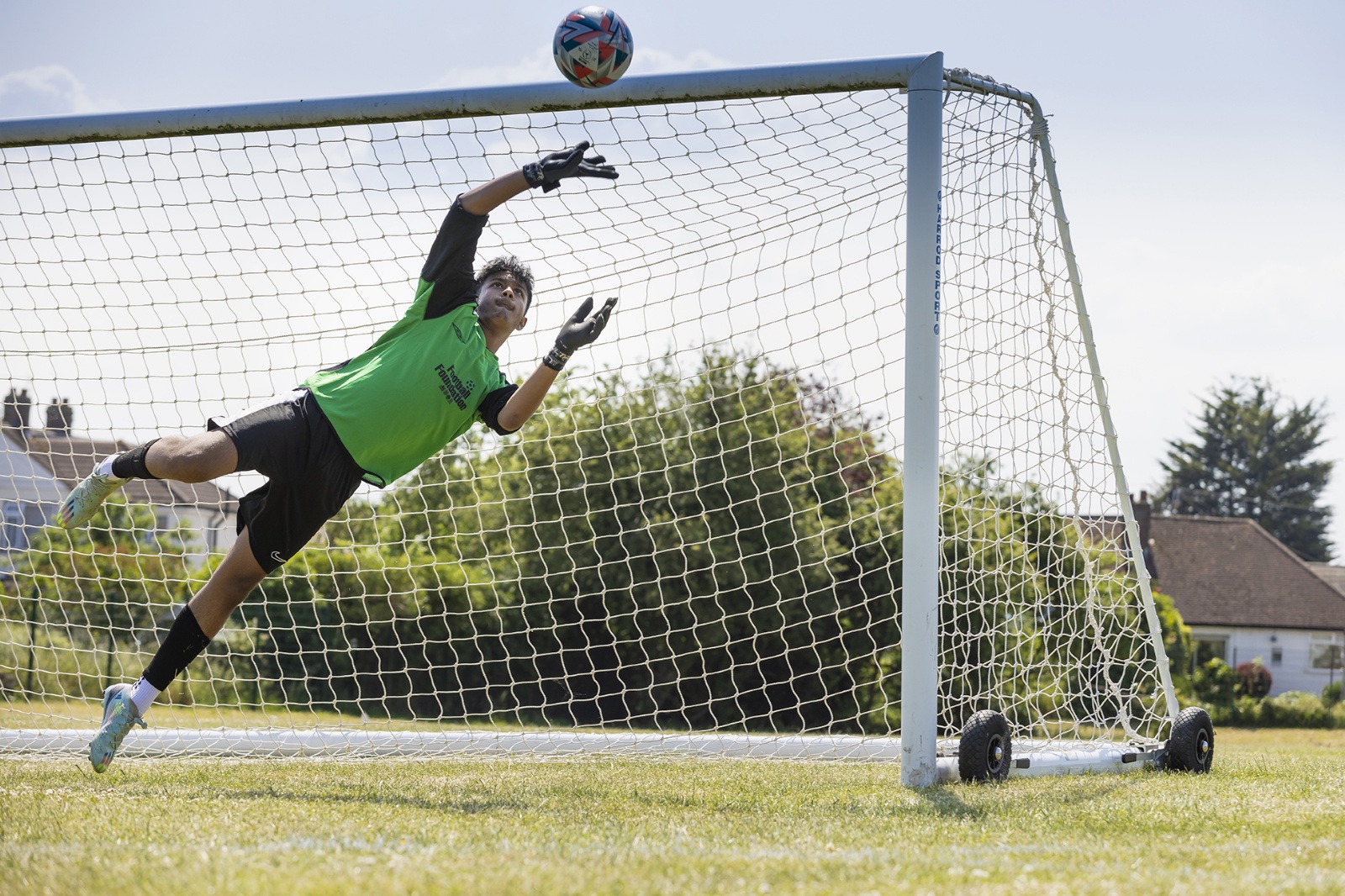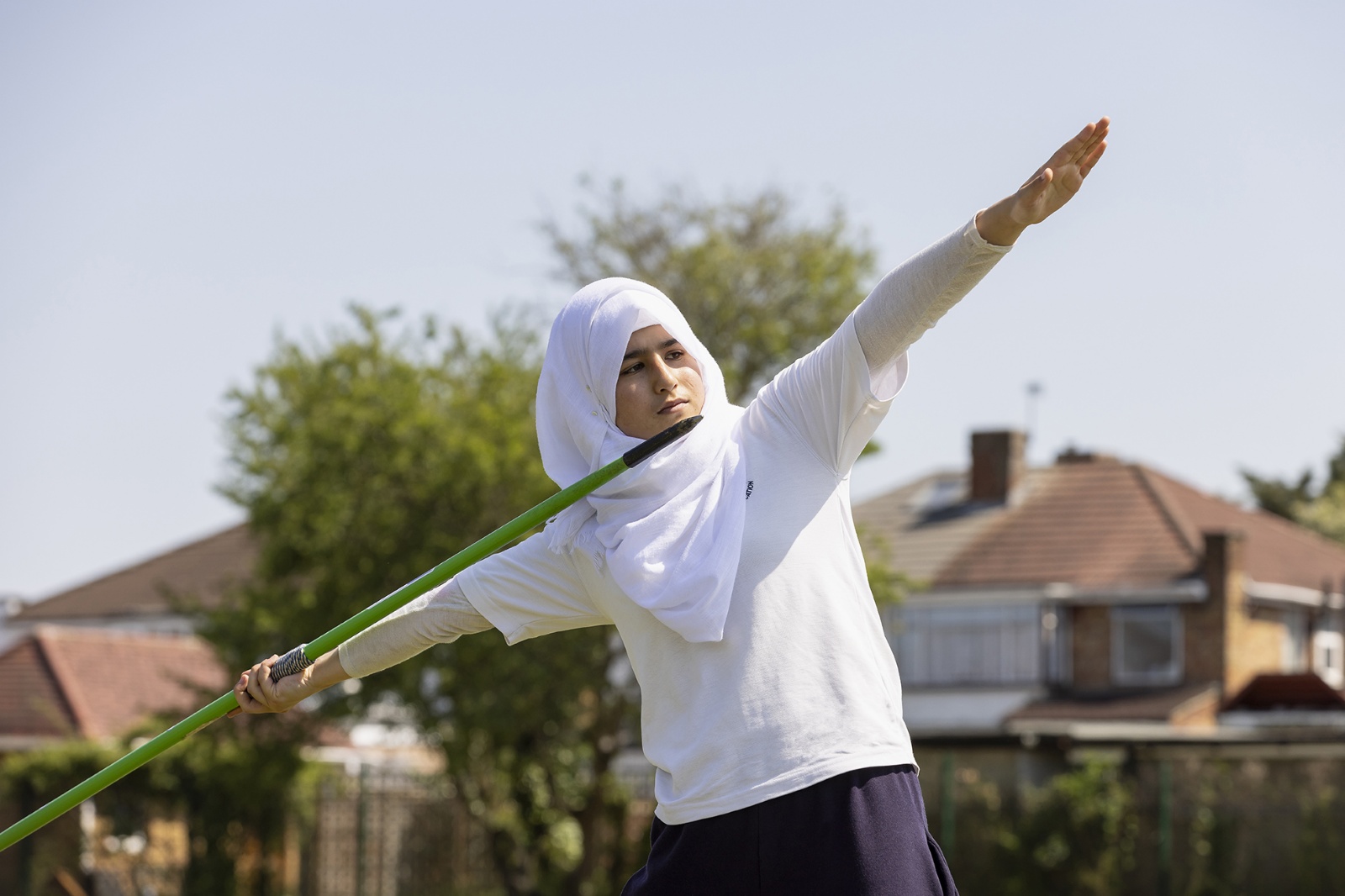Physical Education
Welcome to the Physical Education Department
"The important thing in Physical Education is not winning but the taking part. The essential thing in life is not conquering but fighting well." - Baron Pierre de Coubertin
Head of Department:
Mr Byrne
e-mail: abyrne38.310@parkhighstanmore.org.uk
Introduction
Our vision is for a curriculum that inspires all students to achieve confidence and success in the world of sport and exercise. Our primary aim is to provide an education that immerses students in the subject matter, fostering a love of learning through Physical Education. This in turn builds success and confidence, derived from a sound knowledge of how to participate competently. Success and confidence may also come from a secure pathway through the world of sport and exercise science, sports leadership and first aid. Finally, success and confidence might also grow by developing excellence through performance in a particular sport or activity. We believe that developing confidence and success when learning about, participating in, studying, leading or performing sport and exercise provides a solid building block upon which lifetime involvement can stand. Our curriculum also promotes physical, social and mental wellbeing. These values are central to the delivery of lessons themselves as well as being specifically taught and embedded as values for life. Students who continue their sport and exercise journey when they leave Park High will be contributing positively to society as responsible citizens.
Key Stage 3
Students take part in a knowledge rich curriculum, designed to foster a love of learning in Physical Education. We follow the national curriculum, teaching a broad range of sport and exercise. The breadth of our offer, which includes Tag Rugby, Netball, Volleyball, Table Tennis, Gymnastics, Cricket, Rounders, Athletics, Trampolining and Football, inspires our students. The carefully planned and sequenced delivery of knowledge in each area engages our students and allows them to develop their confidence and, in turn, their success. As students experience PE, they learn what it means to be part of the world of sport and exercise, practicing utilising qualities such as sportsmanship and etiquette.
Year 7
Year 7 students are taught on a rotation of the following physical activities. Students will start their journey in any one of the following areas and gain confidence, understanding and practical skills.
| Autumn | Spring | Summer |
|---|---|---|
|
Tag Rugby Netball Volleyball Table Tennis Gymnastics |
Tag Rugby Netball Volleyball Table Tennis Gymnastics |
Cricket Rounders Athletics Trampolining |
| Assessment | ||
|
Skill development – maintaining the quality of technique and adapting to challenging situations. Full context – making tactical, strategic and performance decisions along with the application of skills or concepts in full context scenarios. |
||
Aims (of all PE units) are to ensure that all students:
- Develop competence to excel in a broad range of physical activities.
- Are physically active for sustained periods of time.
- Engage in competitive sports and activities.
- Lead healthy, active lives.
Link to prior learning: Students should build on and embed the physical development and skills learned in key stages 1 and 2, become more competent, confident, and expert in their techniques, and apply them across different sports and physical activities.
Link to future learning: They should develop the confidence and interest to get involved in exercise, sports, and activities out of school and in later life and understand and apply the long-term health benefits of physical activity.
Common misconceptions to address: They should understand what makes a performance effective and how to apply these principles to their own and others’ work.
Year 8
Year 8 students are taught on a rotation of the following physical activities. Students will start their journey in any one of the following areas and gain confidence, understanding and practical skills.
| Autumn | Spring | Summer |
|---|---|---|
|
Tag Rugby Netball Volleyball Table Tennis Gymnastics |
Tag Rugby Netball Volleyball Table Tennis Gymnastics |
Cricket Rounders Athletics Football |
| Assessment | ||
|
Skill development – maintaining the quality of technique and adapting to challenging situations. Full context – making tactical, strategic and performance decisions along with the application of skills or concepts in full context scenarios. |
||
Aims (of all PE units) are to ensure that all students:
- Develop competence to excel in a broad range of physical activities.
- Are physically active for sustained periods of time.
- Engage in competitive sports and activities.
- Lead healthy, active lives.
Link to prior learning: Students should build on and embed the physical development and skills learned in key stages 1 and 2, become more competent, confident, and expert in their techniques, and apply them across different sports and physical activities.
Link to future learning: They should develop the confidence and interest to get involved in exercise, sports, and activities out of school and in later life and understand and apply the long-term health benefits of physical activity.
Common misconceptions to address: They should understand what makes a performance effective and how to apply these principles to their own and others’ work.
Year 9
Year 9 students are taught on a rotation of the following physical activities. Students will start their journey in any one of the following areas and gain confidence, understanding and practical skills.
| Autumn | Spring | Summer |
|---|---|---|
|
Tag Rugby Netball Volleyball Table Tennis Leadership |
Tag Rugby Netball Volleyball Table Tennis Leadership |
Cricket Rounders Athletics Football |
| Assessment | ||
|
Skill development – maintaining the quality of technique and adapting to challenging situations. Full context – making tactical, strategic and performance decisions along with the application of skills or concepts in full context scenarios. |
||
Aims (of all PE units) are to ensure that all students:
- Develop competence to excel in a broad range of physical activities.
- Are physically active for sustained periods of time.
- Engage in competitive sports and activities.
- Lead healthy, active lives.
Link to prior learning: Students should build on and embed the physical development and skills learned in key stages 1 and 2, become more competent, confident, and expert in their techniques, and apply them across different sports and physical activities.
Link to future learning: They should develop the confidence and interest to get involved in exercise, sports, and activities out of school and in later life and understand and apply the long-term health benefits of physical activity.
Common misconceptions to address: They should understand what makes a performance effective and how to apply these principles to their own and others’ work.
Key Stage 4
All students continue their study of PE through KS4. Here, they utilise the knowledge acquired at KS3 and apply this in increasingly demanding situations. Lessons focus increasingly on strategy, decision making and tactics with students who understand the demands of the activities from their KS3 experience. All students also follow a programme of Sports Leadership and First Aid; developing essential skills for life. For example, a student may improve valuable communication skills through our programme of Sports Leadership. Students can choose to study GCSE PE in addition to the core curriculum, where the world of sport and exercise is examined from a theoretical perspective and additional sports sessions support students to develop their performance for the practical aspect of the course.
Core
Year 10
Year 10 students are taught on a rotation of the following physical activities. Students will start their journey in any one of the following areas and gain confidence, understanding and practical skills.
| Autumn | Spring | Summer |
|---|---|---|
|
Tag Rugby Netball Volleyball Table Tennis Basketball |
Tag Rugby Netball Volleyball Table Tennis Basketball |
Cricket Sports Leadership Football |
| Assessment | ||
|
Skill development – maintaining the quality of technique and adapting to challenging situations. Full context – making tactical, strategic and performance decisions along with the application of skills or concepts in full context scenarios. |
||
Aims (of all PE units) are to ensure that all students:
- Develop competence to excel in a broad range of physical activities.
- Are physically active for sustained periods of time.
- Engage in competitive sports and activities.
- Lead healthy, active lives.
Link to prior learning: Students should build on and embed the physical development and skills learned in key stages 1 and 2, become more competent, confident, and expert in their techniques, and apply them across different sports and physical activities.
Link to future learning: They should develop the confidence and interest to get involved in exercise, sports, and activities out of school and in later life and understand and apply the long-term health benefits of physical activity.
Common misconceptions to address: They should understand what makes a performance effective and how to apply these principles to their own and others’ work.
Year 11
| Autumn | Spring | Summer |
|---|---|---|
|
Park High Coaching Award – Basketball Park High Coaching Award – Table Tennis
|
First Aid – St Johns Ambulance Assessment |
Netball Football |
| Assessment | ||
|
Students will lead a group of younger students. |
In class assessment through MCQ test for St John’s Ambulance participation certificate. |
Full context rules Full context Focus |
|
Skill development – maintaining the quality of technique and adapting to challenging situations. Full context – making tactical, strategic and performance decisions along with the application of skills or concepts in full context scenarios. |
||
Aims (of all PE units) are to ensure that all students:
- Develop competence to excel in a broad range of physical activities.
- Are physically active for sustained periods of time.
- Engage in competitive sports and activities.
- Lead healthy, active lives.
Link to prior learning: Students should build on and embed the physical development and skills learned in key stages 1 and 2, become more competent, confident, and expert in their techniques, and apply them across different sports and physical activities.
Link to future learning: They should develop the confidence and interest to get involved in exercise, sports, and activities out of school and in later life and understand and apply the long-term health benefits of physical activity.
Common misconceptions to address: They should understand what makes a performance effective and how to apply these principles to their own and others’ work.
GCSE PE
Year 10
Sports Science (AQA GCSE PE) is a two-year course run over Year 10 and Year 11 for those students who opt to study this course. It involves a practical assessment and written coursework (worth a total of 40%) and two written examinations (worth 60%). There are two papers focusing on the following topics:
- The human body and movement in physical activity and sport
- Socio-cultural influences and well-being in physical activity
| Autumn | Spring | Summer |
|---|---|---|
|
-The meaning of health and fitness: physical, mental/emotional and social health- linking participation in physical activity to exercise, sport to health and well-being. -The consequences of a sedentary lifestyle. -Obesity and how it may affect performance in physical activity and sport. -Somatotypes. -Energy use. -Reasons for having a balanced diet and the role of nutrients. -The role of carbohydrates, fat, protein, vitamins and minerals. -Reasons for maintaining water balance (hydration) and further applications of the topic area. -Bones and the functions of the skeleton. -Structure of the skeletal system/functions of the skeleton. -Muscles of the body. -Structure of a synovial joint. -Types of freely moveable joints that allow different movements. -How joints differ in design to allow certain types of movement. -How the major muscles and muscle groups of the body work antagonistically on the major joints of the skeleton to affect movement in physical activity at the major movable joints. - First-, second- and third-class lever systems |
-Mechanical advantage. -Analysis of basic movements in sporting examples. -Planes and axes. -The pathway of air and gaseous exchange. -Blood vessels. -Structure of the heart and the cardiac cycle (pathway of blood). -Cardiac output and stroke volume (including the effects of exercise). -Mechanics of breathing and interpretation of a spirometer trace. -Aerobic and anaerobic exercise. -Recovery/EPOC. -The short and long term effects of exercise. Mock Examinations |
-Classification of skills -The use of goal setting and SMART targets to improve and/or optimise performance -Basic information processing Guidance and feedback on performance -Mental preparation for performance -Examples of and evaluation of the types of feedback and guidance. -Arousal and the Inverted U theory. -Application of how optimal arousal has to vary in relation to the skill/stress management techniques. -Aggression and personality. -Intrinsic and extrinsic motivation, including evaluation of their merits. |
| Assessment | ||
|
Recall weekly, past paper questions as home learning & timed in lessons and cumulative, summative paper. |
Recall weekly, past paper questions as home learning & timed in lessons and cumulative, summative paper. |
Recall weekly, past paper questions as home learning & timed in lessons. UCAS prediction exam. Recall weekly, past paper questions as home learning & timed in lessons. |
Year 11
In Year 11 students are encouraged to specialise in the Sports of their choice and extra-curricular activities are offered for students to develop their capability before assessment. Three sports are required with AQA. Students can also expect to develop their exam technique, with particular focus on extended answers. Students complete their coursework in Year 11 and will have been taken through a stepped approach to reach this point.
| Autumn | Spring | Summer |
|---|---|---|
|
-Health and fitness recap -The components of fitness -Reasons for and limitations of fitness testing -Measuring the components of fitness and demonstrating how data is collected -The principles of training and overload -Applications of the principles of training -Types of training -Calculating intensity -Considerations to prevent injury -High altitude training and seasonal aspects -Warming up and colling down -Application of the principles to the analysis and evaluation tasks. Mock Examinations Coursework |
-Engagement patterns and factors affecting them -Commercialisation, sponsorship and the media -Positive and negative impacts of sponsorship and the media -positive and negatives impact of technology -conduct of performers and introduction to drugs -sporting examples of drug taking -Adv/Dis to the performer/ the sport of taking PED’s. Spectator behaviour and hooliganism, including strategies to combat it. Revision |
Revision |
| Assessment | ||
|
Recall weekly, past paper questions as home learning & timed in lessons. Cumulative, summative Practice exam. |
Recall weekly, past paper questions as home learning & timed in lessons. |
Recall weekly, past paper questions as home learning & timed in lessons and cumulative, summative paper. Exams |
Percentage of Coursework: 40%
Percentage Exam marks: 60%
Examination Board:
Course Specification:
AQA 8582 GCSE Physical Education
Qualification obtained:
GCSE Physical Education (full course)
Useful Websites:
www.qualifications.pearson.com/en/subjects/physical-education-and-sport.html
www.bbc.co.uk/schools/bitesize
Useful Reading Material:
AQA GCSE Physical Education Third Edition
GCSE Physical Education: The Pocket-Sized Revision Guide
Additional Information
Enrichment
Our experienced PE team, who have a variety of specialisms, run an extensive programme of sport at Park High School. Our sports programme offers training and coaching before school, at break / lunch and after school Monday to Friday. We have a proud tradition of success and those who perform well at borough level, go on to compete in prestigious regional and national competitions. We encourage students to strive for excellence and to achieve sporting success, whilst recognising that many will simply enjoy participation.
Check out Sporting Events by clicking here
Useful Websites
|
|
|
|---|





